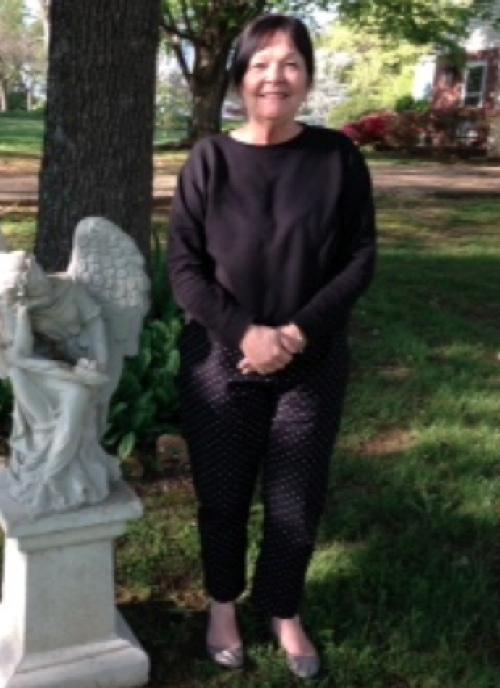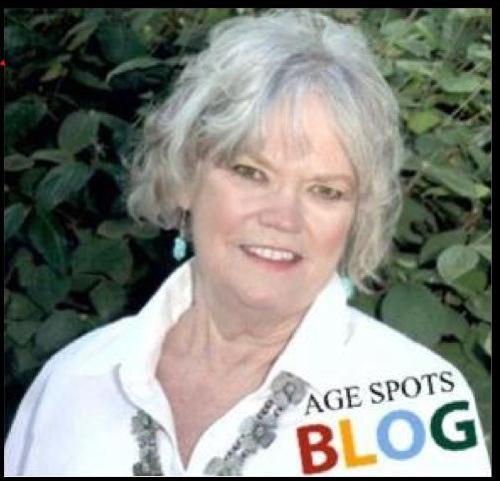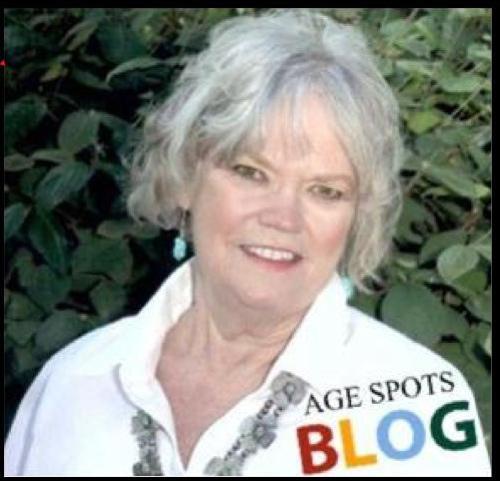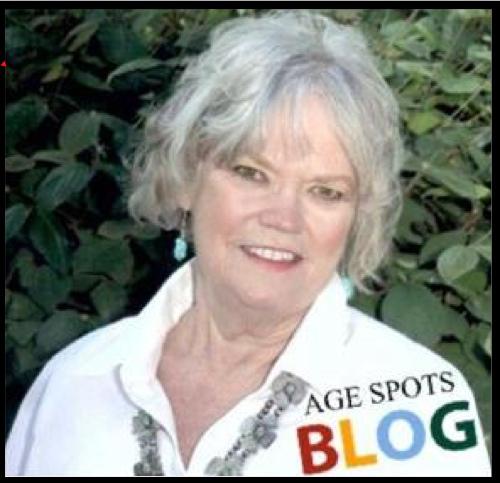
Hello, Neighbor
Written by Nancy Nelson Vines
"There's no place like home," Dorothy tells Aunty Em, and for Pat Myers those words resonate to a place deep within her.
"I left Puxico in 1963, after finishing my eighth grade year. I had gone to school there since third grade, and felt a real connection to my classmates," she explains. As anyone who has attended a small school knows, the friendships forged there are special because everyone in class is your friend.
"Every school day for six years I spent seven hours a day with the same people. Then, I moved to St. Louis and enrolled in Roosevelt High School where I was in a class of 400. I made friends, of course, but it wasn't the same."
Shortly after finishing high school Pat met her future husband Larry on a church trip to the St. Louis Zoo. "Larry was from Arnold and had attended school at Mehlville, so we did not know each other. This was an outing sponsored by several area churches, and he just happened to sit next to me on the bus. He pestered me the entire day," she fondly recalls. A short time later he asked her out on a date, and six months later they married. Larry worked for Bell Telephone and was eventually transferred to Houston, Texas. There they lived for the next forty years and raised two daughters.
"I never felt like I was at home," Pat says. "I don't mean I wasn't happy because we were very happy with our life there, but something inside of me was just a little unsettled." As thoughts of retirement began to stir, Pat felt a twinge of longing for the place where she felt "at home."
"I began by idly scanning the internet looking at houses and land around Puxico. I never really thought we would come back to this area," she says in amazement. "I honestly was only looking." As she broadened her search to include more of Southeast Missouri, however, she began to think that maybe they could do this.
"I always told Larry how pretty this area was, with all the wildlife, flowers, and birds. I remember seeing roadrunners in the cotton rows when I was a little girl chopping cotton. He also understood my emotional ties, and how happy my school days in Puxico had been."
Things began to "get real" for Pat when an older home in Bloomfield caught her eye. The couple made a trip to check it out, purchased the home, and three years later made the move to Southeast Missouri.
The couple's devotion to their home is obvious, as they have spent much of the past two years updating, refurbishing, and redecorating. Among Pat's many talents are interior design, sewing, and landscaping. "I am happiest when I am working, and nothing makes me happier that working around my home."
Through classmates.com and Facebook, Pat has reconnected with many of her old friends.
"We have been apart for forty years, so it is like starting over to rebuild the friendships we once shared; however, I truly believe that 'connection' is still there," she says. The couple is also busy making new friends in their adopted hometown of Bloomfield.
Standing in their lovely yard, with yet more plants waiting to be planted, Pat glances around. "This is home," she whispers lovingly.
Shown in the photo is Pat Myers as she pauses beside one of her beloved yard angels in her historic home in Bloomfield, Missouri.

This day honors Friedrich Wilhelm August Frobel (April 21, 1782 – June 21, 1852) who is credited for starting the very first Kindergarten in Germany in 1837.
Frobel was a German teacher and a student of Pestalozzi who laid the foundation for modern education based on the recognition that children have unique needs and capabilities. He created the concept of the “kindergarten” through play and activity institute as a social experience for children for their transition from home to school.
His goal was that children should be taken care of and nourished in “children’s gardens” like plants in a garden.
Today, most states in the United States offer free kindergarten to children ages five and six. Kindergarten is a fun and memorable time in the “social experience of the transition from home to school.”

Ruth Dockins
Medicare Part C and Medicare Part D Options
The Center for Medicare/Medicaid Services (CMS) sent out notices around the end of February to individuals who are enrolled in Part C or Part D plans, if the plan has earned less than three stars for three consecutive years during the recent annual enrollment period. The plans can get ratings between 1 and 5 stars. 5 stars meaning excellent and 1 star being poor.
This notice was to alert beneficiaries to the sponsor or organization’s low rating and to inform enrollees of an opportunity to contact CMS to request a special enrollment period to move into a higher quality plan in 2015.
If you received one of these notices you may want to make a change to another plan. To make a change you should call 1-800-medicare (1-800-633-4227). If you are having no problems with the plan and want to continue with it you may do so. If you have questions about this you may call our office at 1-800-392-8771 or locally at 335-3331.
Premium Assistance
Please don’t forget that our office can assist you with applications for assistance paying your Part B, C or D premium if you meet the income guidelines. If you are single and have monthly income of $1,471 or less and resources (things you own not counting your house and car) of $13,640 or less you would be eligible for assistance paying your premium for Part D. If you are married the monthly income could be $1,991 or less with resources of $27,250 or less to get help paying the premium for Part D.
To get help paying the premium for Medicare Part B ($104.90 per month this year) you would need to have monthly income of $1,345 or less as a single person or $1,813 or less as a married couple with resources of $7,280 or less for a single person or $10,930 or less as a married couple.
If you have questions about any of this information or need help applying for the benefits please call my office at 1-800-392-8771 or locally at 335-3331.

Age Spots
by Ruth Dockins
Medicare “Bootcamp” to be Held
Aging Matters will be holding a Medicare Bootcamp on Monday, March 23, at the Fisher Delta Research Center, 147 West State Highway T. in Portageville. The bootcamp will start at 6 p.m. and be over by 8 p.m. Medicare bootcamps are for people who are just getting ready to be eligible for Medicare and also people who are already in Medicare but may have questions about Medicare or Medicare Supplements.
As you may know Medicare has parts: part A, part B, part C and part D; while Medicare Supplements have plans: plan a, b, c, d, f, g, k, l, m, and n. There are specific times a person can enroll into these parts and plans, it is very important not to miss a deadline for any of them.
Aging Matters staff, Jackie Dover, Liz Yokley, Meagan Brazer and Ruth Dockins will be at the Delta Center to address these part and plans and answer question about both. If you are interested in attending please call 1-800-392-8771 to register. Walk-ins are welcome but we want to be sure we have enough handouts for everyone.

Age Spots
by Ruth Dockins
You are your own best advocate
Some of the following information comes from the Federal Trade Commission. Be alert, check every bill before you pay it and always look at your credit card statements for unusual charges. Never pay a fee for something you “have won.”
Regarding bills, you are your own best advocate. How often does a company figure out that you’ve overpaid---and refund your money? It could happen, but you are more likely to get money back if you spot the error and point it out. Read every statement, every time. If something looks unfamiliar call the company and ask, always keep written records of date and time of call and to whom you spoke.
When dealing with certain companies where you might have more than one account number (i.e. hospitals) be sure that the check you write has the correct account number on it and then be sure that the check is applied to the correct account. A person came to my office bringing with her a statement from a hospital showing that she was past due on an account on which she was making payments. She showed me the canceled checks stating that she was not past due on the account. When we finally got “to the bottom” of the situation the hospital had been applying her check to another of her accounts, which was now showing an over-payment, instead of applying the payment to the correct account. Unfortunately the hospital had not made her aware of the over-payment.
Another time a person paid a doctor’s bill twice, instead of returning the second payment the doctor’s office credited her account, which would have been ok if she attended the doctor regularly but this was a doctor to whom she only went one time a year. What would have happened to her credit if she never went back to the doctor?
The best advice regarding credit card statements is to keep all your credit card receipts and compare them to you statement when it comes. When I returned from vacation a few years ago I was comparing my credit card receipts to the credit card statement and noticed that somewhere in another state where we had eaten lunch they had charged my credit card twice for the same amount on the same day. It wasn’t too much, probably less than $12 but still, I needed that $12 as badly as they did. I contacted the credit card company and the extra charge was taken off. I don’t know if it was a mistake on the restaurant’s part or not but either way I didn’t owe it and wasn’t going to pay it.
On the back of your credit card where there is a place for your signature, instead, you should write “see I.D.” This tells the clerk to ask for additional I.D. from you to be sure it is really you using your credit card. When the clerk asks me to see additional I.D. I always thank them because, by doing this, they are helping protect my credit card. When your credit card is handed back to you be sure that it is the correct card, that it didn’t accidentally get exchanged for a similar one.
If you ever get a call telling you that you have “won” a prize, a lottery or a sweepstakes and they ask for your credit card number or bank account information do not give the information. Never share your financial information with someone who contacts you and claims to need it.

